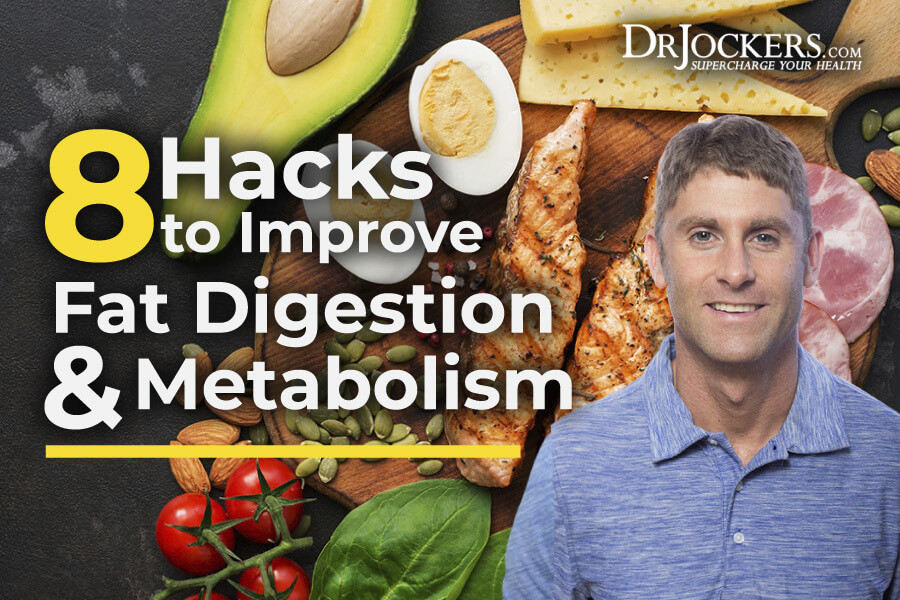 Trouble Digesting Fats?
Trouble Digesting Fats?
Whether you are following a ketogenic diet or trying to lower your carb intake, increasing your intake of healthy fats is critical to many aspects of health. That being said, your previous lifestyle and unique health challenges can cause trouble digesting fats. This article will break down common causes, symptoms, and hacks to improve fat metabolism.
Once you address the factors outlined below, you will be on your way to becoming a fat burning machine. If you are a frequent reader of my material, you will know that this is a powerful step in optimizing your health and adding quality years to your life.
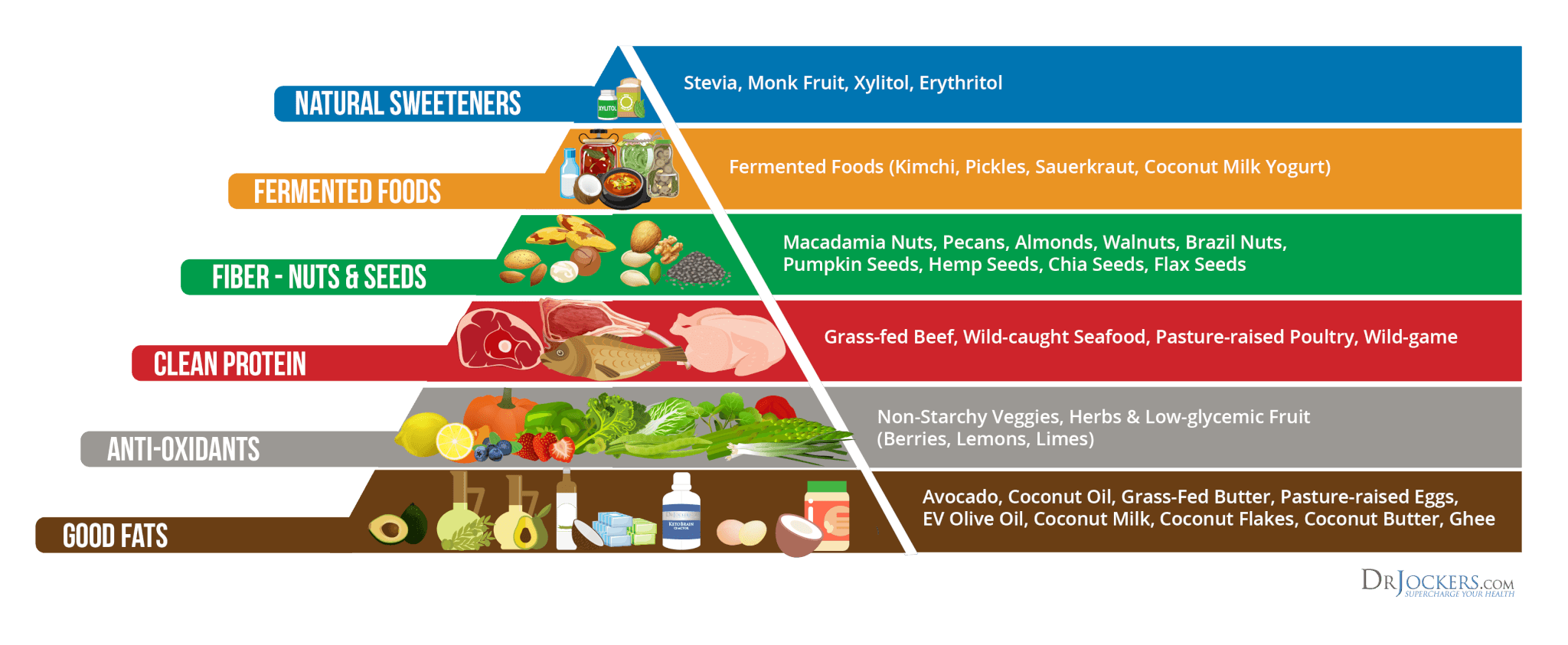
Importance of Fat Digestion
It is important to optimize fat metabolism for many reasons. Fats help to balance blood sugar, optimize hormones, stimulate satiety, transport fat-soluble nutrients, and provide a powerful source of fuel if your body is keto adapted.
If you have trouble digesting fats, then you will likely experience very apparent side effects. That being said, most people in our society simply do not consume enough fats, consume too many refined carbohydrates, or consume the wrong kinds of fats. All of these things can stifle fat metabolism and contribute to poor health.
Once you are consuming a healing diet full of healthy fats and low in carbohydrates, we can further focus on supporting fat metabolism for optimal health.
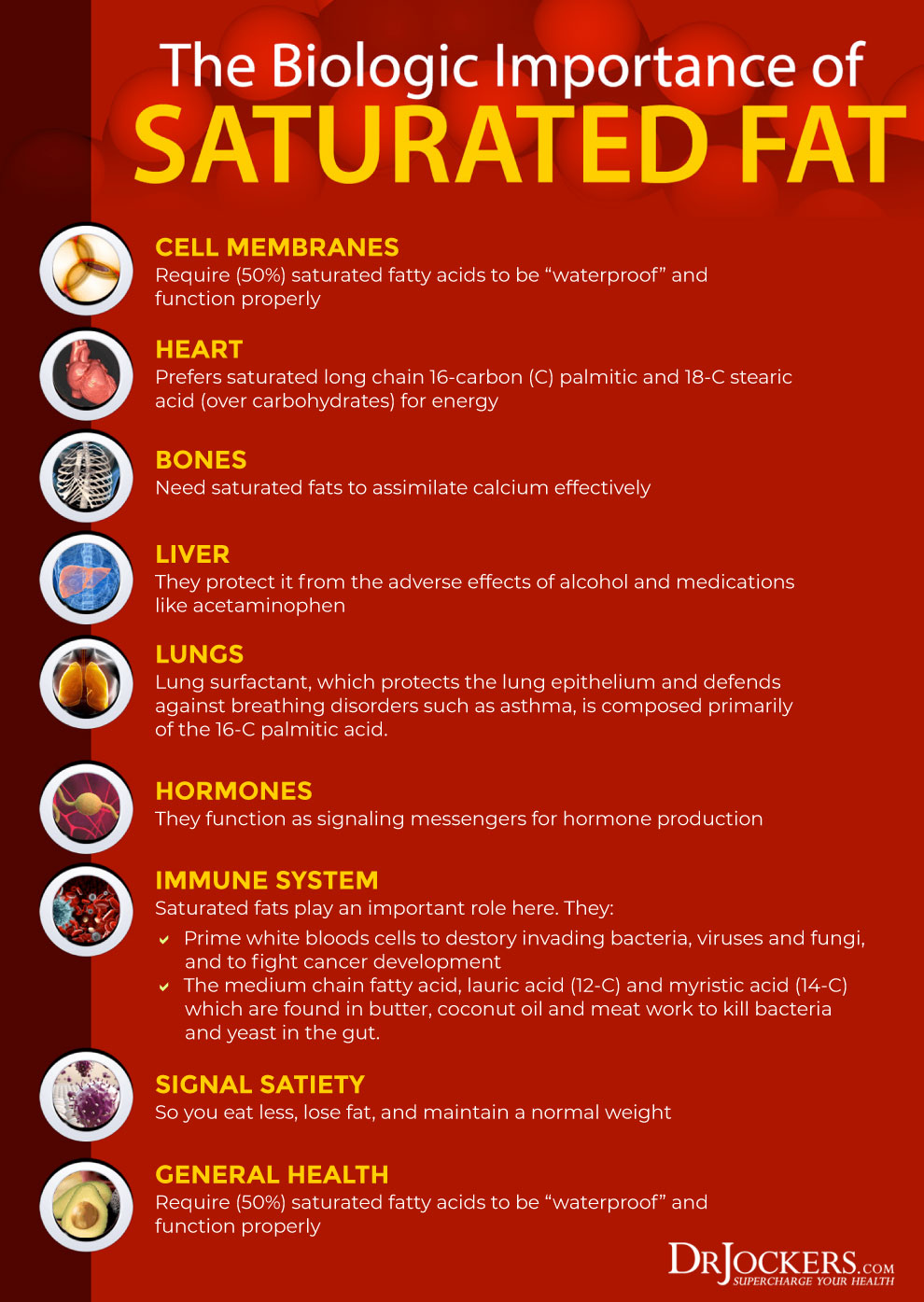
Symptoms of Poor Fat Digestion
As was mentioned already, poor fat digestion can contribute to many problems. Namely, poor energy levels, energy slumps, sugar cravings, irregular bowel movements, and poor nutrient absorption.
Other apparent symptoms could include:
- Nausea & Vomiting
- Abdominal Pain
- Gas & Bloating
- Headaches & Migraines
- Weight Loss Resistance
- Skin problems (itchiness, yellow hue, rashes)
- …and further complications to health, such as hypothyroidism, chemical sensitivities, fibromyalgia, etc.
As you can see, if you are having trouble digesting fats, then resolving this issue is critical.

Causes of Trouble Digesting Fats
There are many reasons why someone may have trouble digesting fats. If you have the symptoms outlined above, or simply do not feel well when consuming higher amounts of fat, then the following strategies will help you to troubleshoot this issue.
These issues are the most common things my health coaching team and I see on a regular basis when people struggle on keto. You can go through each one at a time, or you may have a hunch as to which one in particular is the culprit.
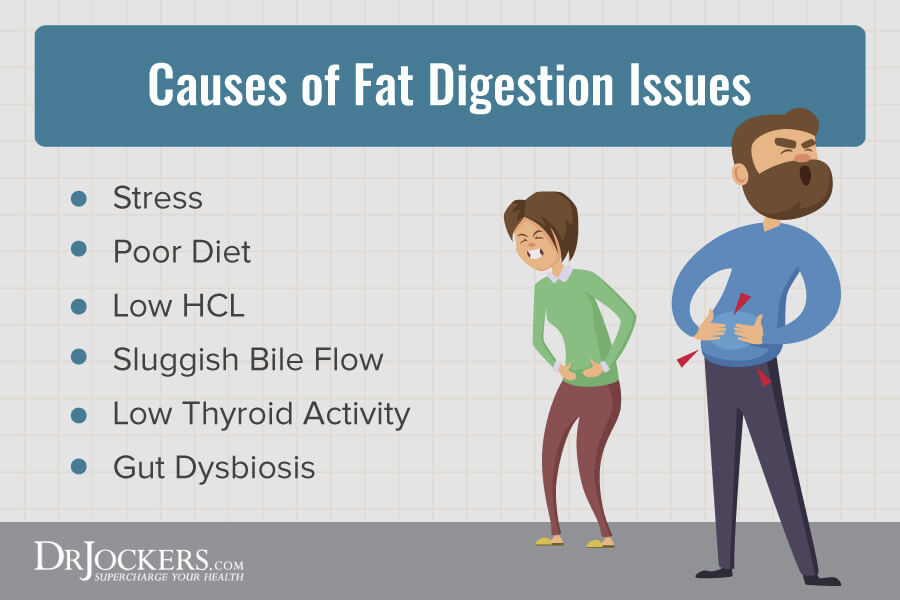
Stress
Stress is a primary factor when it comes to optimizing digestion. When you are stressed, the brain responds accordingly. Basically, your body interprets stress as something you need to immediately get away from. When this is happening, digestion is not a priority. Finding ways to reduce stress, balance cortisol levels, and optimize sleep will go a long way in improving fat metabolism.
A state of relaxation is optimal to stimulate digestive processes. As a high-functioning go-getter, I know it is not always possible to eat in a fully relaxed state. This is why I fast in the morning, and consume liquid meals (such as this chocolate pudding) during the day. I then consume my largest meal when I am in my most relaxed state, at nighttime after my work is completed for the day.
Reducing stress and learning to control your stress response are key to fat metabolism. Consuming liquid meals, such as shakes, during the day is also a great way to aid in digestion. Finally, consuming your largest meal when you are in your most relaxed state for the day is very helpful.
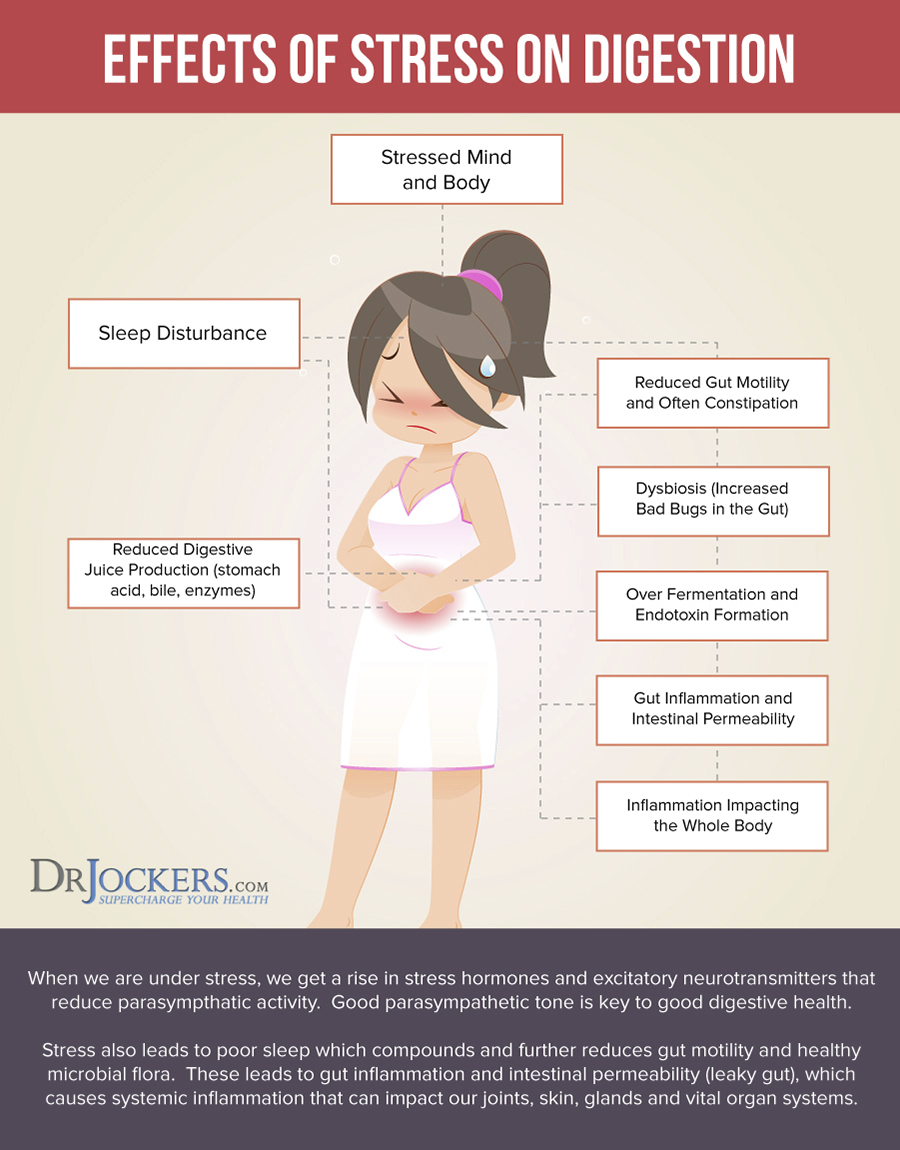
Poor Diet
Another huge reason for trouble digesting fats is that you are simply not consuming a healthy diet. If your diet is too high in inflammatory fats and processed carbs, digestion will be inhibited.
First, make sure you are following a healing diet as outlined here: Healing Diet
Then, make sure you are consuming healthy fats and avoiding inflammatory fats as outlined here: Top 3 Healthy Fats
I often find that my idea of a healthy diet and someone else’s idea of the same are very different. Getting on the same page about this makes solving these issues much easier!
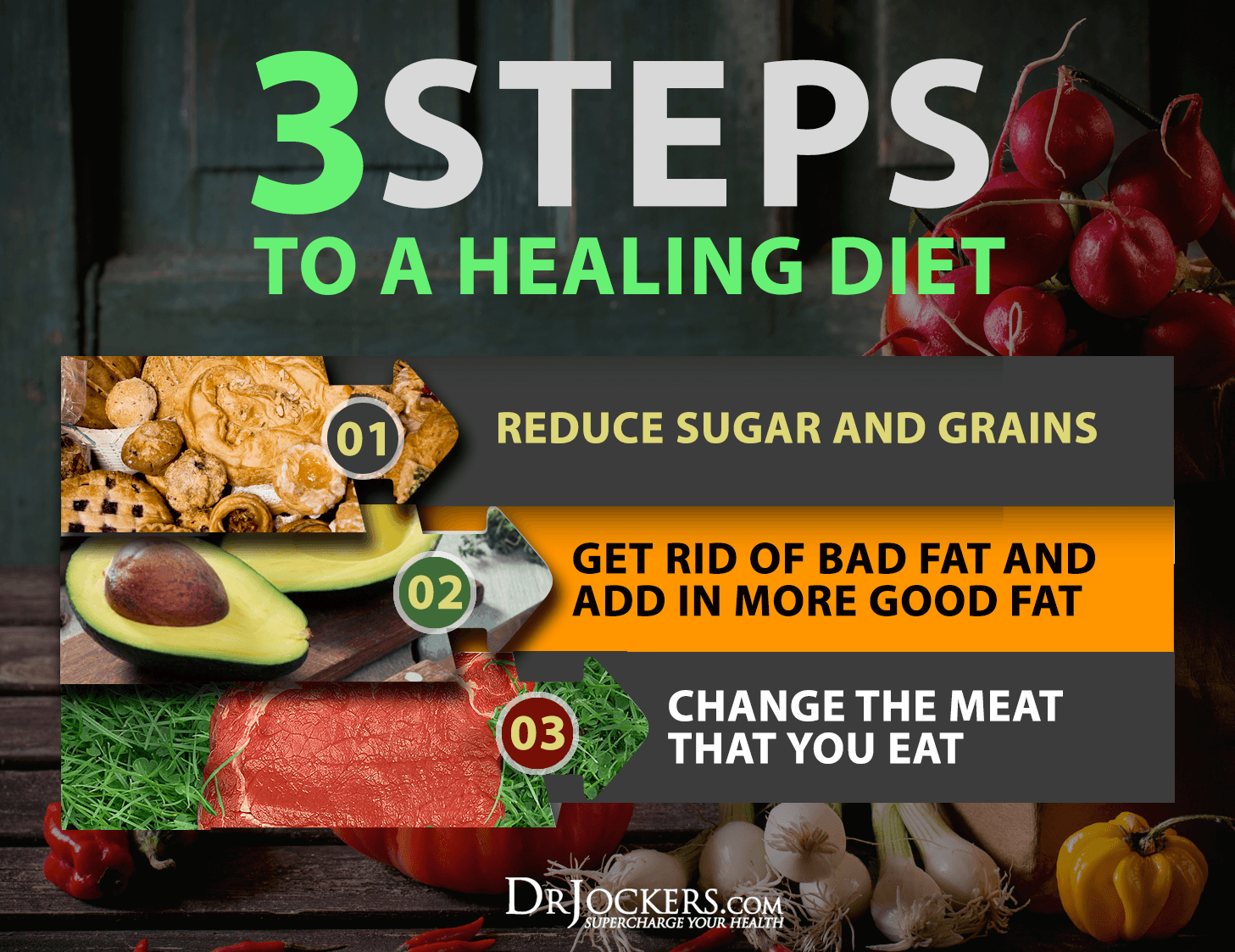
Low HCL
Optimal stomach acid (HCL) production is critical for digestion. Poor stomach acid production leads to a vicious cycle of poor digestion, malnutrition, and microbial imbalance in the gut (1, 2). This often leads to things like leaky gut and autoimmunity down the road (3).
If you have a history of antibiotic use, H. Pylori infections, chronic stress, heartburn medication use, or poor diet, then Low HCL could be affecting your fat metabolism as well.
Symptoms of low HCL include heartburn, bloating, skin problems, hair loss, fatigue, and more.
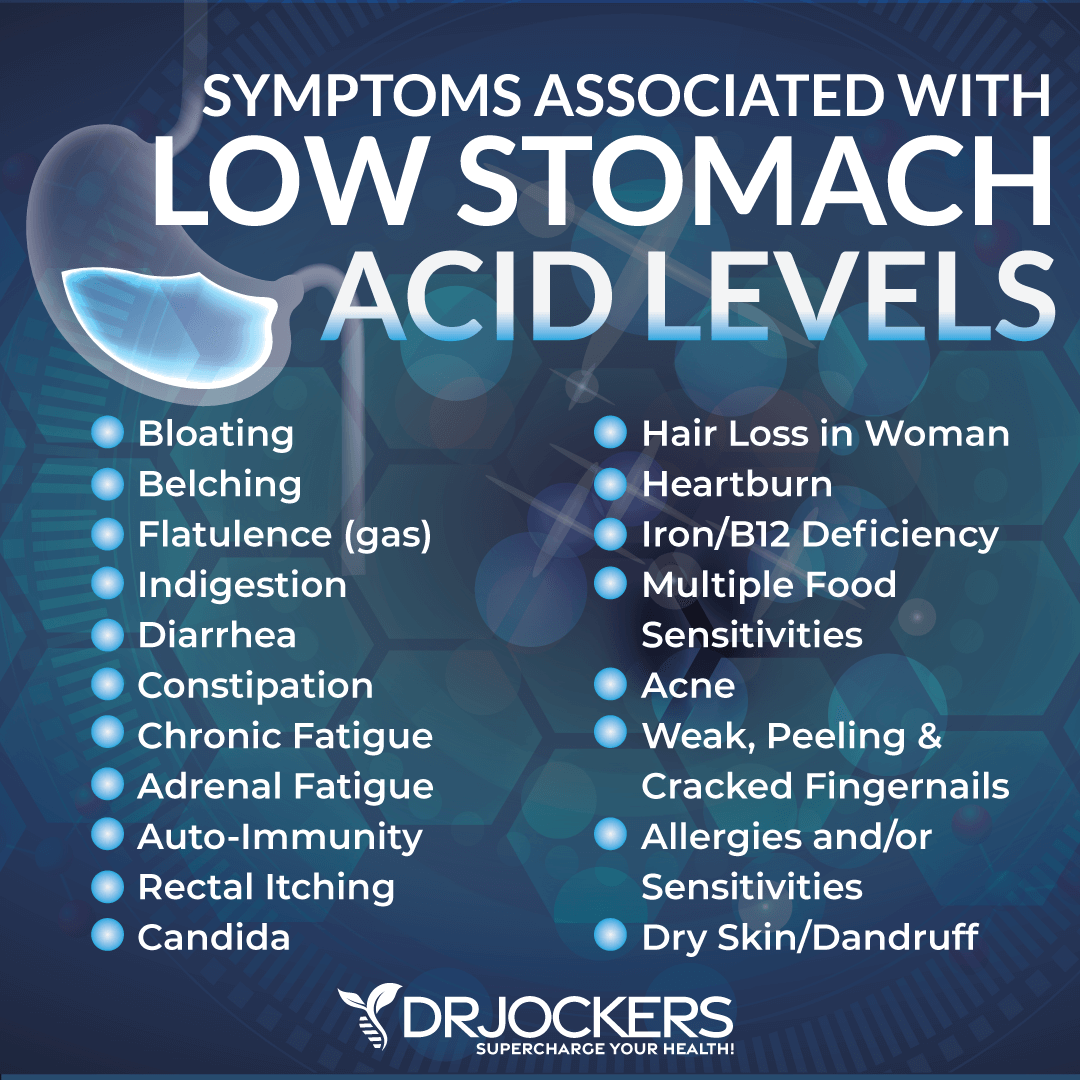
Sluggish Bile Flow
The liver and gallbladder work together to produce and secrete bile. Bile emulsifies dietary fats so that they can be absorbed readily by the intestines. Many people have gallbladder issues that clearly inhibit fat digestion.
If you have had your gallbladder removed, then you will more than likely have trouble digesting fats. While the liver can still secrete bile, additional support may be necessary for these individuals. Sluggish bile flow will also contribute to the buildup of toxins, leading to other unpleasant symptoms and health challenges.
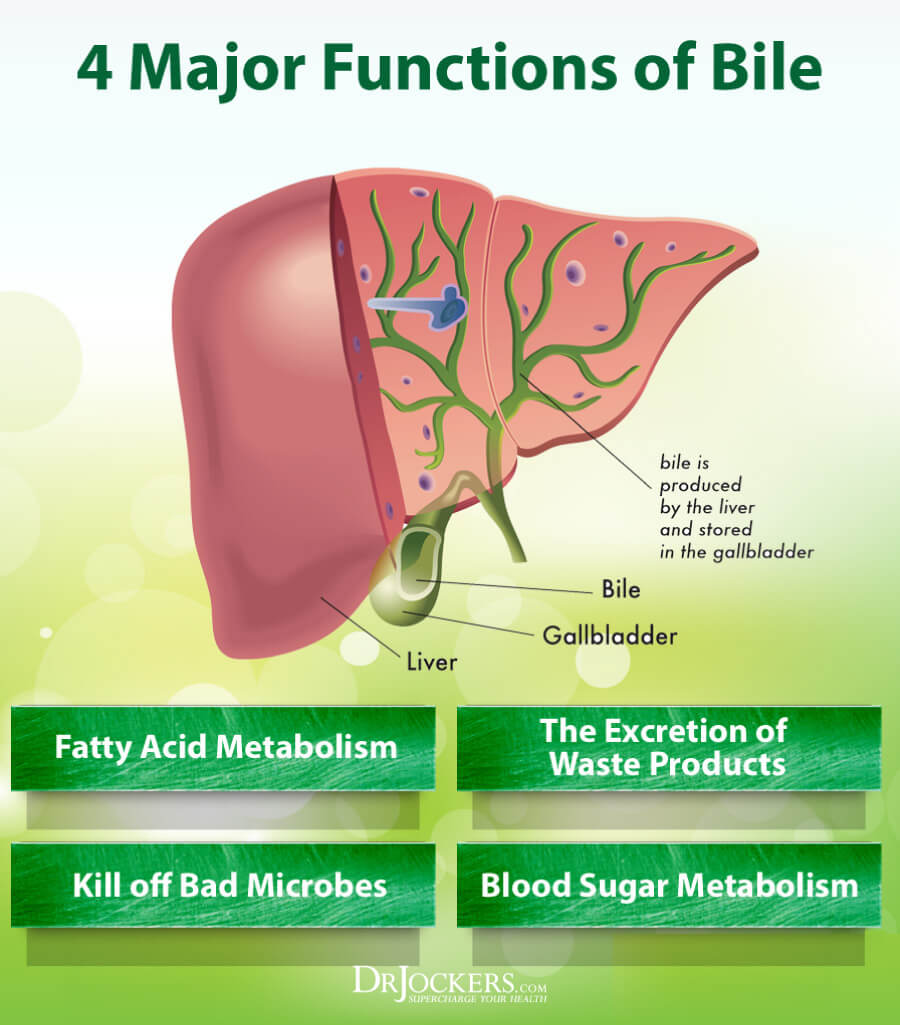
Low Thyroid Activity
Fat metabolism issues and poor thyroid function go hand-in-hand. This is because thyroid hormones play a regulatory role in liver detoxification and associated functions (4). When liver detoxification is slowed down, this can impact bile production and, therefore, fat digestion.
If you have hypothyroidism, this will be critical to address if you have trouble digesting fats. Not only will this control fat digestion, but also your overall ability to burn fat.
I would recommend having a Comprehensive blood panel run to rule out this factor. Working with a functional nutrition specialist can help to overcome any issues you are facing in this regard.
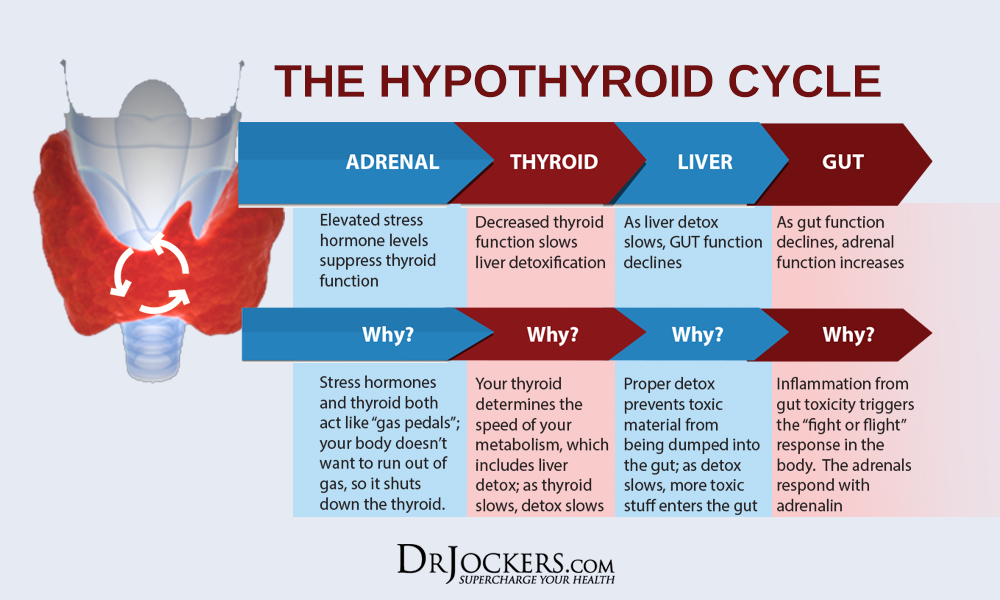
Gut Dysbiosis
Imbalanced bacteria in the gut, or elevated levels of opportunistic bacteria, can create inflammatory conditions. Over time this can become an internal stressor that inhibits stomach acid production and slows bile secretion.
Having the right kinds of bacteria in your gut can also play a role in recycling bile to be reused. This would mean you would not have to create as much to digest fats. This is important because low HCL and bile secretion can also exacerbate microbiome issues, creating another vicious cycle (5).
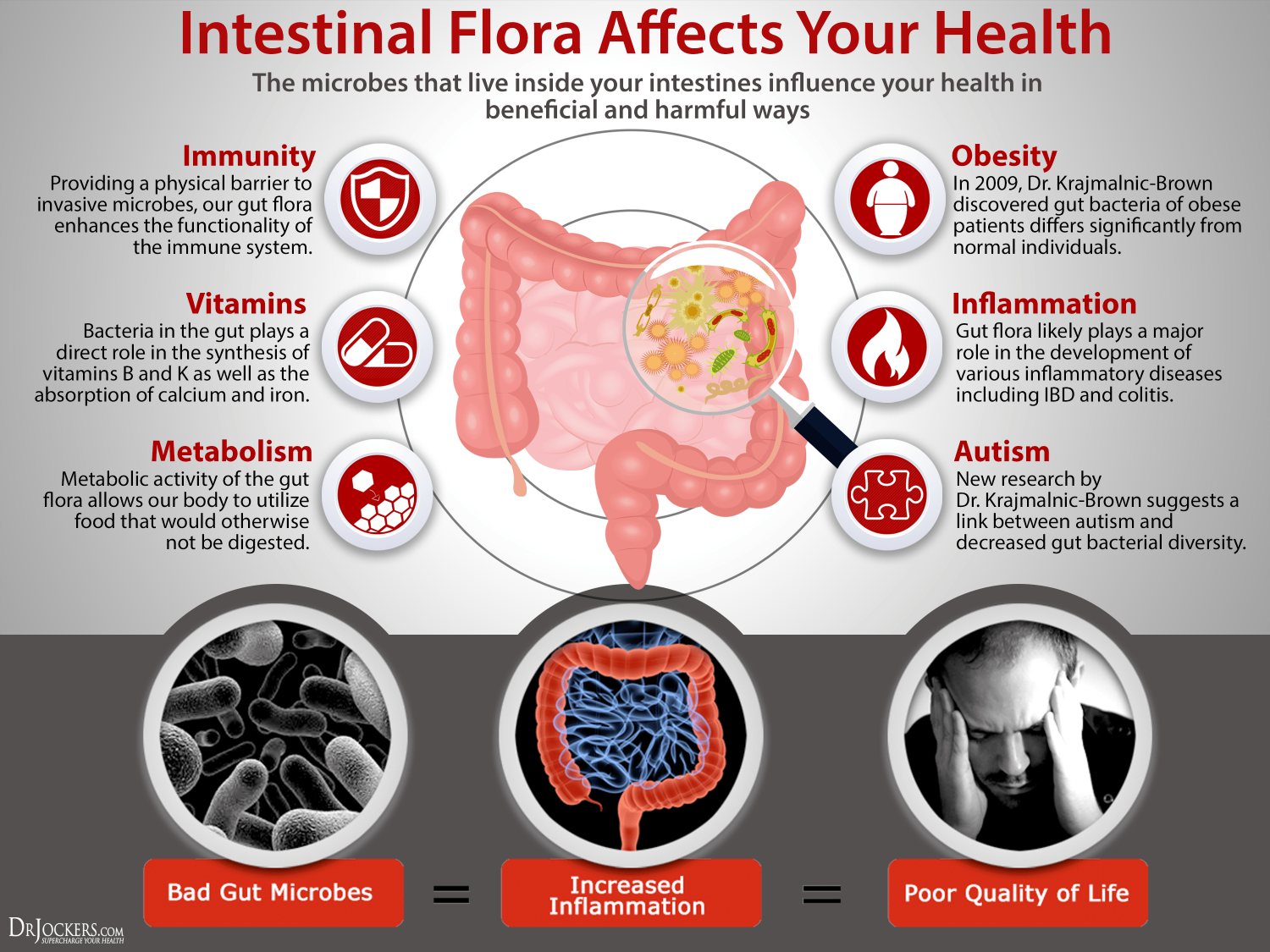
Hacks to Improve Fat Metabolism
Now that we have established the importance of poor fat metabolism, we can discuss strategies to improve it. If we are going to stabilize our blood sugar and improve our health, it is essential that we optimize our fat digestion and metabolism.
Improving your ability to digest fat will help your body produce energy without using sugar. These are my top hacks for those who are having trouble digesting fats.
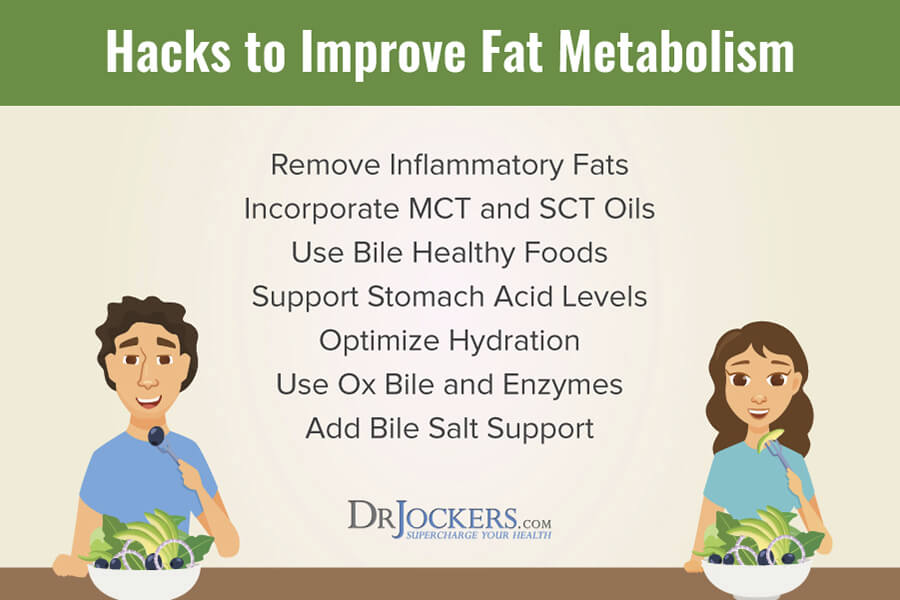
Remove Inflammatory Fats
First of all, if you are consuming the wrong kinds of fats, then this will negatively impact your metabolism and digestion. Things like canola, soybean, sunflower, corn, safflower, and peanut oil are often genetically modified and inflammatory to the body.
In fact, this applies to anyone I coach. I would not consider these fats healthy for anyone. Replace these with healthy saturated, omega-3, and monounsaturated fats for optimal health. My top healthy fat sources are outlined below, along with which are best for cooking or dressing uses.
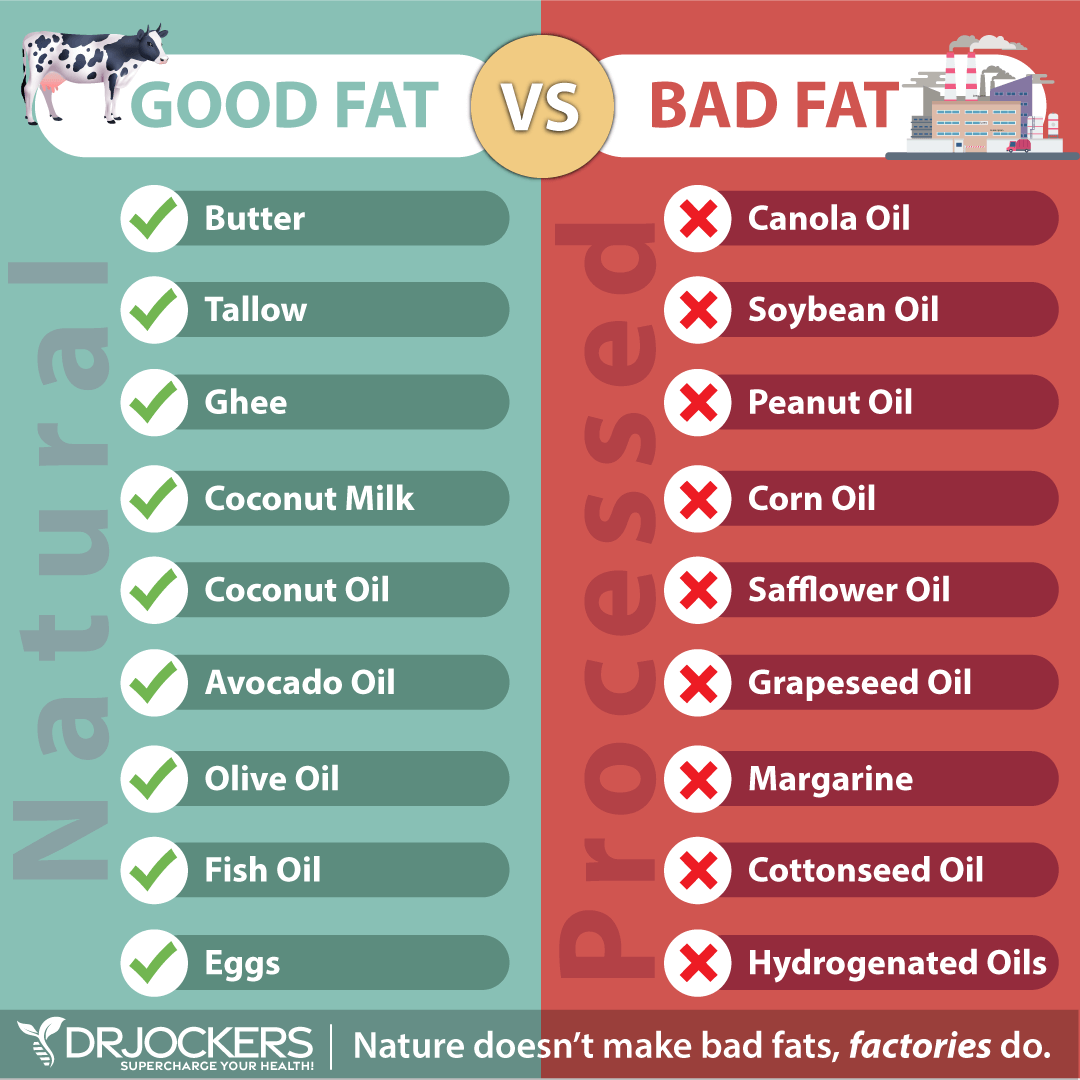
Use MCT Oil
If you have trouble digesting fats, then sticking to easy digesting fats can be very helpful. Longer chain fats found in avocados, nuts & seeds, olive oil, and meat require much more energy to digest (6). This is because they depend on the effective production and utilization of bile for emulsification as well as pancreatic lipase for digestion and assimilation.
MCT oil is a medium chain fat that is very easy to digest and metabolize into energy. While small amounts can be found in coconut oil, using a refined MCT oil supplement goes much further. The advantage of MCT oil is that they do not depend upon bile emulsification or pancreatic lipase for digestion and assimilation. It becomes a very quick form of energy that is great for those struggling to digest fats.
I recommend looking for a C8-only (caprylic acid) MCT oil, as this is the most ketogenic form. Though it’s only found in only 6 percent concentration in coconut oil, it is considered a powerful cellular fuel that increases mitochondrial energy production in your brain. It turns into cellular energy (ATP) very quickly, in 3 steps only, compared to 26 steps for sugar. The C8 only MCT oil I use is called Keto Brain.
Bile Healthy Foods
To improve the emulsification and absorption of fats, it is important to stimulate bile flow. Optimal bile flow supports fat metabolism, blood sugar balance, controls bacterial growth in the gut, and normalizes cholesterol levels.
The top foods for bile production include:
- Ginger
- Apple Cider Vinegar
- Artichokes
- Lemons & Limes
- Fermented veggies and drinks
- Celery
- Asparagus
- Milk Thistle
Additionally, bitter herbs like dandelion, cilantro, and parsley have beneficial effects for bile flow.
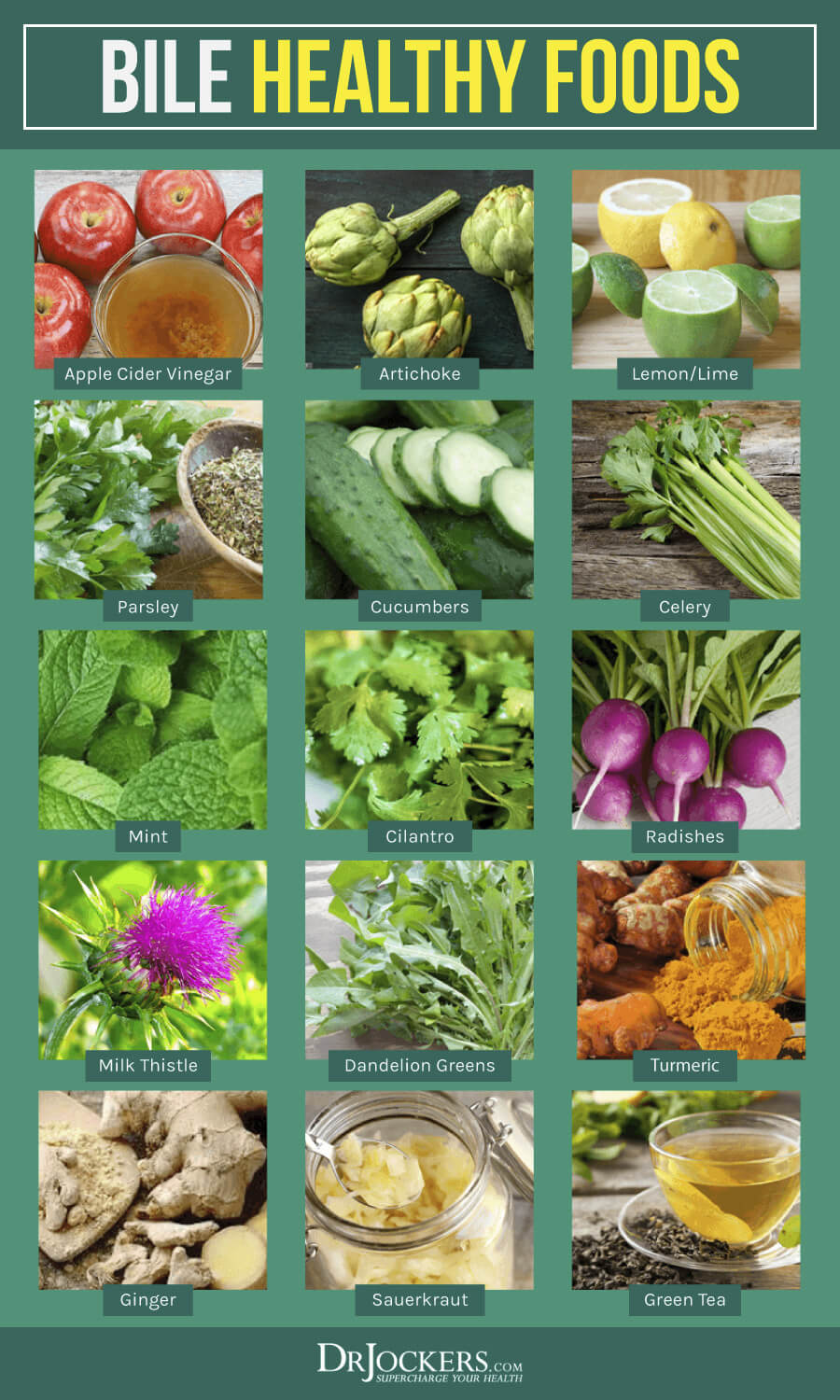
Support Stomach Acid
As we discussed earlier, stomach acid production is critical for digestion and the health of the entire gut. If you have any of the symptoms outlined earlier in this article, supporting stomach acid production will be critical for you.
Avoid drinking at least 30 minutes before meals and about an hour afterwards. The one exception is 2-4 oz of apple cider vinegar in a small amount of water, 15 minutes before meals to stimulate stomach acid and bile production.
You may also consider utilizing an HCL supplement while working on improving your body’s own ability to make it.
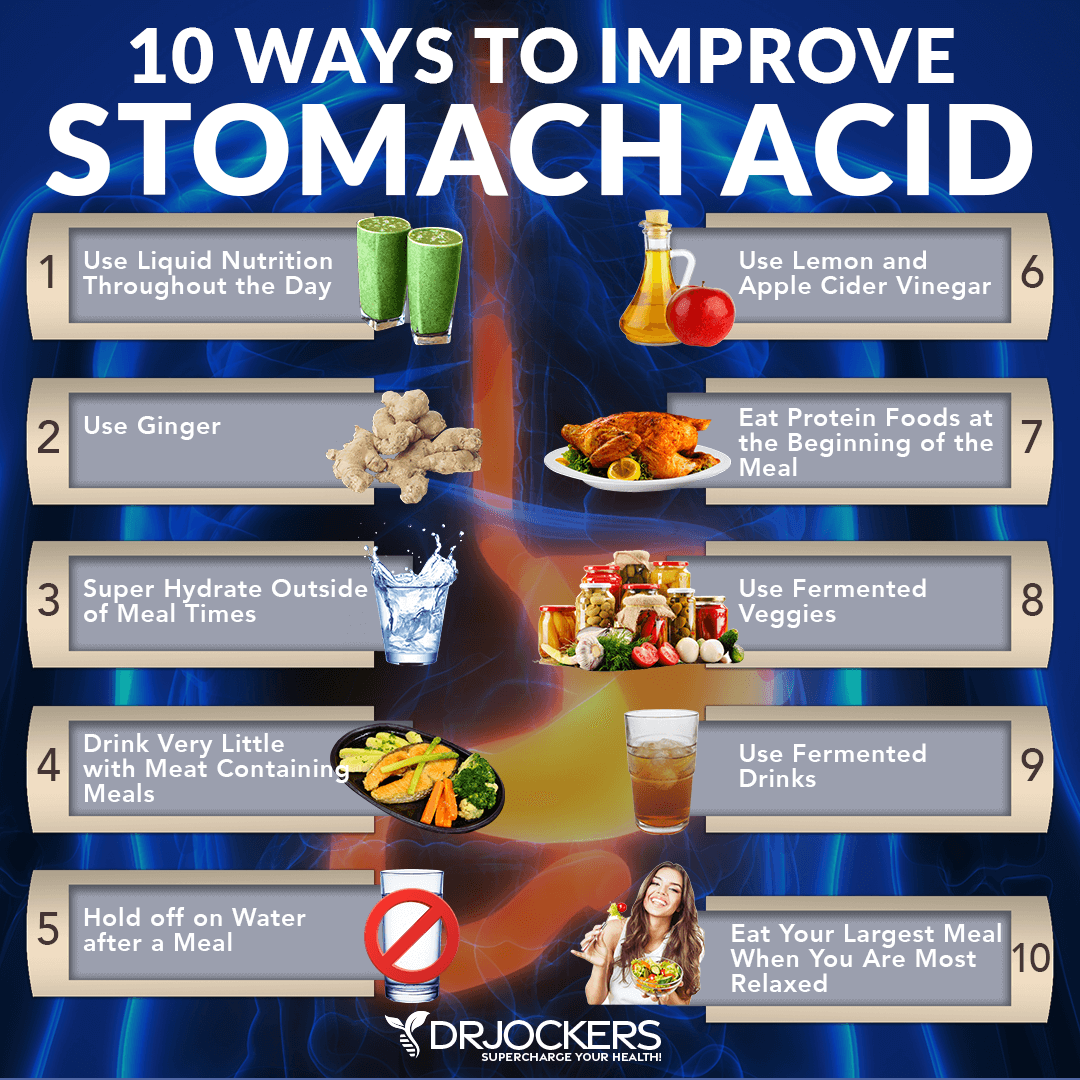
Hydration
Adequate water is required in order for the liver to make bile. When you are chronically dehydrated, bile can become thick and sludge-like, slowing down bile flow. You should strive to drink 16-32 ounces of water within the first hour of waking up in the morning.
In addition, my recommendation is drinking at a minimum of half of your body weight in ounces of water per day. I weigh around 160 lbs, so this would mean I would drink at a minimum, 80 oz of purified water daily. Ideally, you would get closer to your full body weight in ounces, and I routinely consume 160 oz of water each day.
You may not be able to do that…but the more you focus on good hydration, the easier it gets and the better you feel. Drinking enough water also helps ensure that the bowels keep moving to prevent the buildup of waste and the overgrowth of unwanted bacteria. I would recommend getting a high quality water filter, such as the Big Berkey you can find here.

Ox-Bile
Oftentimes, people come to me with gallbladder issues and many don’t have a gallbladder at all. While the liver can sometimes make up for lost function of the gallbladder, additional support can be very helpful.
This is when using an Ox Bile supplement can be extremely helpful for many individuals. Ox Bile is a supplemental form of the bile that our own body produces. The form I most commonly recommend (Super Digest HCL) contains both HCL and Ox Bile for comprehensive digestive support of fats.
This can also help if you have trouble digesting long-chain fats such as olive oil, fatty cuts of meat, and avocados. It is especially important if you are having larger meals with these foods, as your liver will have trouble making enough bile on the spot to effectively metabolize the long-chain fats.
Bile Salt Support
Bile salts are compounds created by our liver that contribute to the fat emulsification effect of bile. There is a large family of bile salts that are created in complex biochemical interactions within the liver. What we do know is that the amino acids choline, taurine, and methionine are very important for this process.
Oftentimes, those experiencing digestive issues are not absorbing these important amino acids from the foods they eat. This makes using a more absorbable form very important.
For this purpose, I recommend Bile Flow Support as it contains these amino acids alongside herbs and compounds known to stimulate the flow of bile to aid in fat metabolism. If you are having trouble digesting fat, this is a go-to.
Do You Have Sludge?
For many reasons including poor diet, exposure to toxins, and chronic dehydration, bile can become thick. Once it turns into a thick, sludge-like substance, digestion can be severely inhibited. In those experiencing trouble digesting fats, I suspect this is fairly common.
If this condition is allowed to progress, it can progress to gallstones or pancreatitis (7). Oftentimes, the traditional solution for this issue is the removal of the gallbladder. This is something that should be avoided until absolutely necessary.
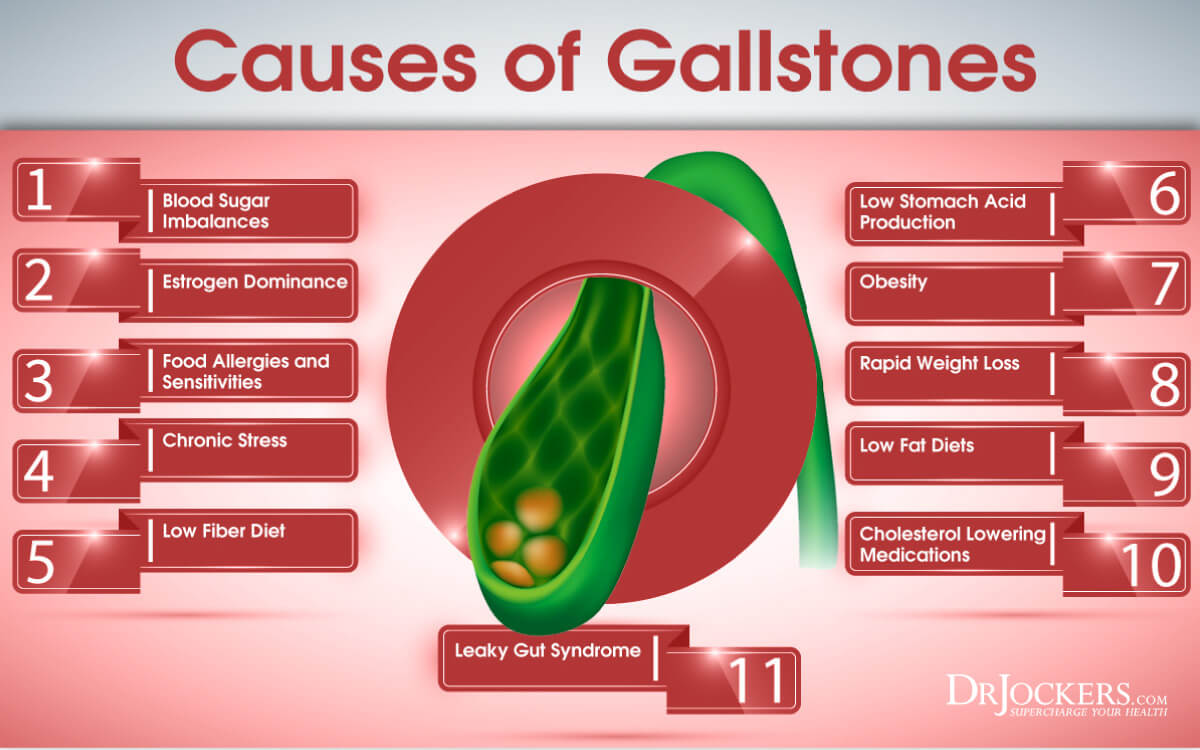
Gallbladder Protocol to Clear Sludge
If you have been diagnosed with biliary sludge or simply want to optimize bile flow, then this protocol may be very helpful for you. It is designed to stimulate bile flow while binding up and built up toxins to prevent negative side effects. Good hydration is critical for this protocol to be effective so make sure you are drinking a minimum of half your body weight in ounces of water daily.
This protocol is designed to be followed for 30 days:
Activated Charcoal: Take 2-4 Capsules, 1 hour before meals, to help bind to the toxic biliary sludge. Do 2 caps if you are under 125 lbs or have lots of trouble with constipation.
Bile Flow Support: Take 2 Capsules, twice daily after meals to help improve bile flow from the liver and gallbladder
Cal Mag Support or Brain Calm Magnesium: Take 1 scoop 1-2 hours after meals to help improve peristaltic action and bowel elimination. This is especially important if you have issues with constipation.
Conclusion
If you have trouble digesting fats, then you will have a hard time experiencing higher levels of health. One of the first things to address when attempting to optimize your health is a healthy blood sugar balance through diet. In order to do this, you need to decrease carb intake and increase healthy fat intake. Without proper fat digestion and metabolism, you may not experience the full benefits.
Common causes of poor fat metabolism have been laid out to make troubleshooting this issue easier. The hacks presented in this article will help to optimize both digestion and metabolism of fats so that you can come closer to optimal health.
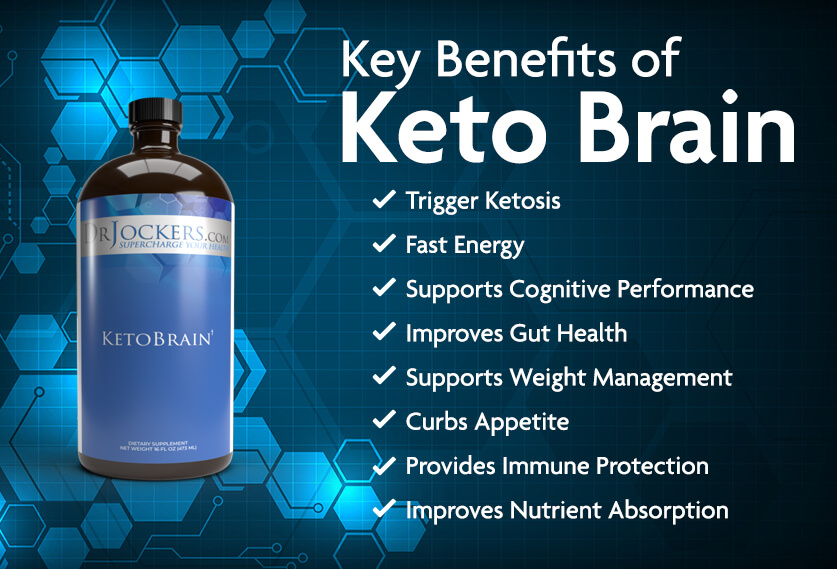



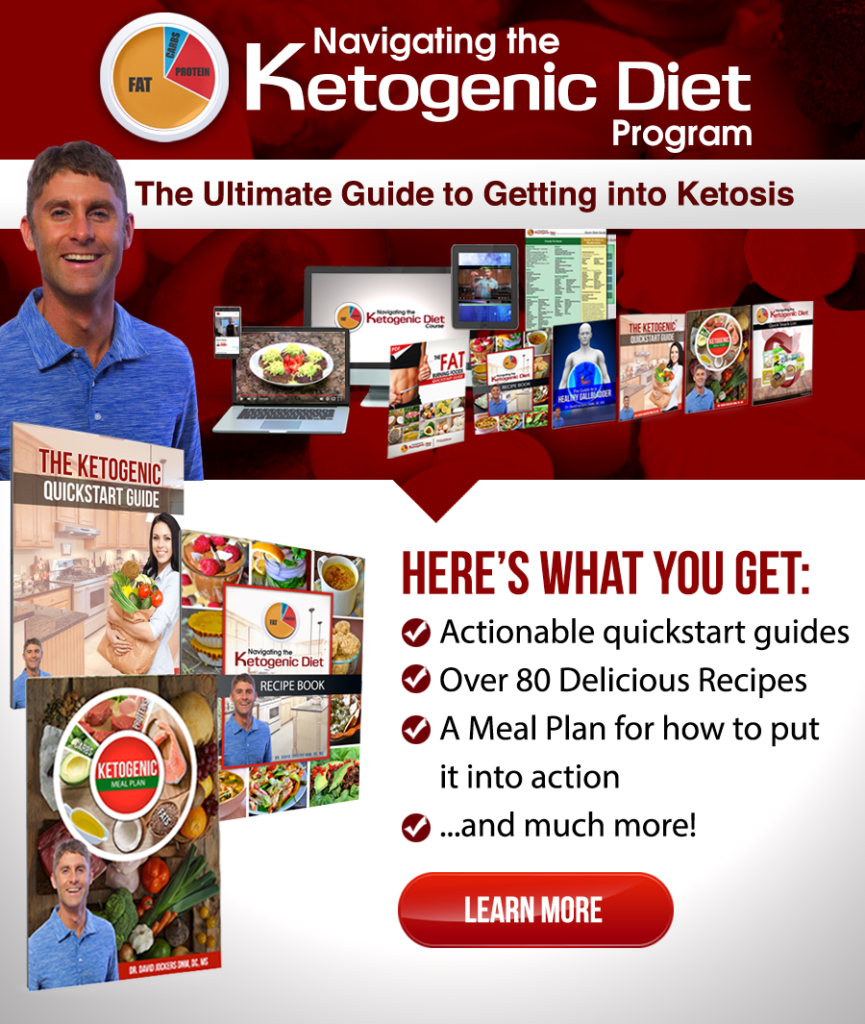
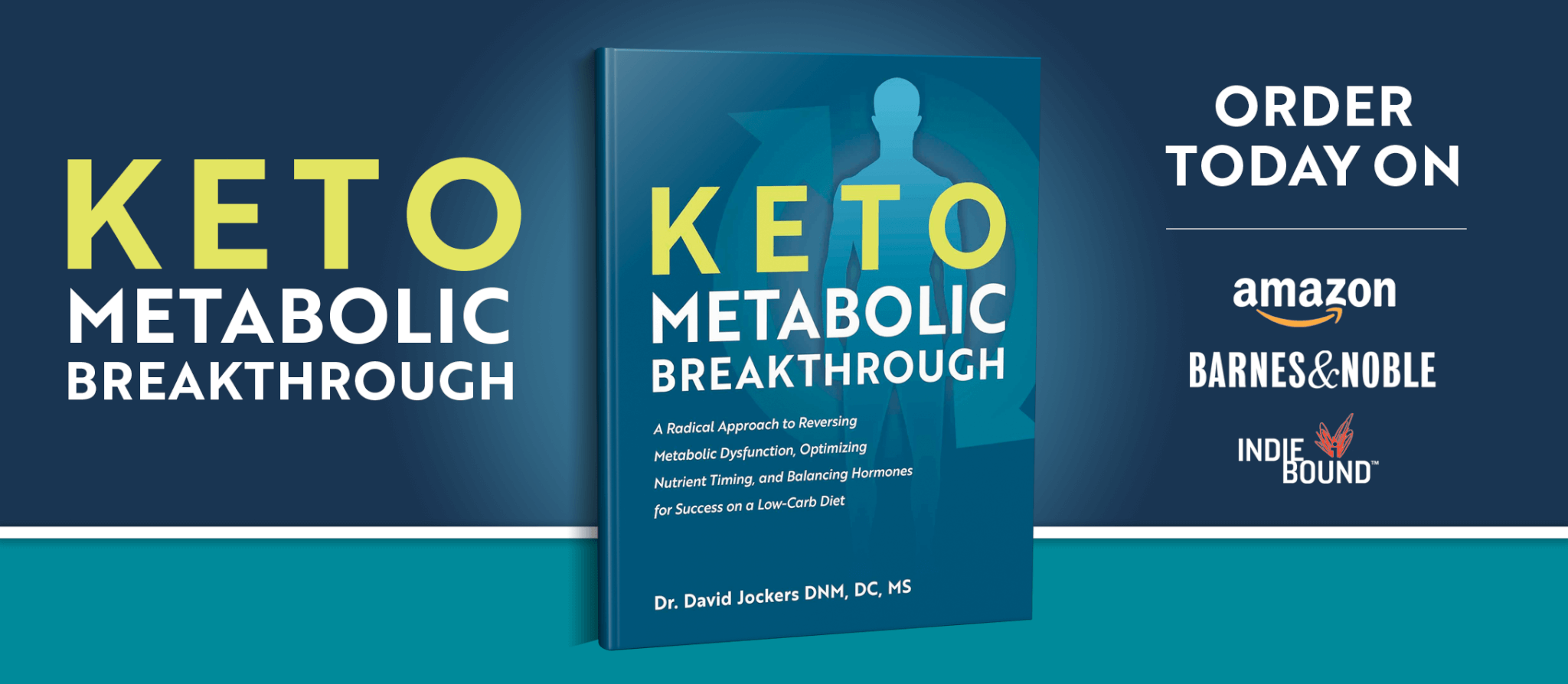


Love these articles. So beautifully done with the many illustrations. I learn a lot from them. I have been wondering if there is a source of resistant starch somewhere in the Keto diet – to feed gut bugs and make short chain fatty acids which I have been led to believe are critical in gut health. Is there something I have missed?
Hey Julia! Many of the foods in this article are keto friendly: https://drjockers.com/top-33-prebiotic-foods/
Thanks for such a great article Packed with info! Fat malabsorption is a huge issue because it can lead to fatty acid deficiencies and also deficiency of vitamins A, D, E and K (fat-soluble vitamins that actually require fat to be absorbed). These vitamin deficiencies lead to problems with skin, immunity and more. I would love to see what people with the APOE4 genetic type should do, as they can’t utilize fats as well (it may have to do with a failure of transport of fats into the cell membranes and brain). Please show us info or a link to info for this genetic subtype. Thanks!
Hey Carol, I do not focus on SNPs very much. I would suggest using a keno-focused enzyme complex and supplementation with something like acetyl-l-carnitine to support fat transportation to the mitochondria! Here are two things that would help:
https://store.drjockers.com/collections/ketogenic-products/products/keto-digest
https://store.drjockers.com/collections/top-sellers/products/brain-supercharge-capsules
Thanks for the tip on acetyl-l-carnitine. Dr J, I am so deeply appreciative of your work emphasizing the importance of bile and stomach acid . . . it is such absolutely a public health crisis right now. With our record-level sugar consumption, the liver inevitably suffers. Sugar, particularly the 50% fructose component of it, damages the liver just like alcohol, and non-alcoholic fatty liver disease now is more common than alcoholic FLD (Dr Lustig asserts that there is an epidemic of childhood NAFLD). Sugar damages both liver and pancreas. Add to the sugar epidemic the fact that more people than ever are on prescription drugs, and at younger ages; Rx meds often cause cholestasis and liver damage. It’s quite a mess, but I appreciate you as a beacon of hope in the middle of this madness!
Hey Carol, Thank you for sharing and for your kind words! Blessings!
Also- parasites (flukes in particular) can block bile ducts. Dr. Ann Louise Gittleman talks a lot about this. It would be good to know how to diagnose and treat parasite infections, which are under the radar of most doctors.
I have a correlation of burning in the neck and body tightening with non acid reflux sensitivity is this a digestive issue fixable is there medication for this and does it cause stool problems I’ve had a mushy stool with a seizure what’s going on with reflux
So sorry to hear about this!! Here is a helpful article: https://drjockers.com/beat-acid-reflux-naturally/
Thank you so much! Had my gallbladder removed some ten years ago and the last two years have had significant issues digesting fat. Primary doctor said eat healthy and GI doctor said “maybe it’s corn”. No help. I know I don’t drink enough water so will give that a try. Thank you for the helpful article.
So sorry to hear this! These suggestions will make a difference for you!
I started to loss weight 4 years ago without any reason. Two years ago, the symptoms of fat malabsorption started to appear like loose/floating/oily stool and increase bowel movements. I need to decrease the consumption of fat in order to stay away from those symptoms. The ability to consume fat is gradually reduced that makes me keep decreasing the daily fat consumption whenever the symptoms appear again.
I’ve gone through all blood test, Gastrointestinal Endoscopy, MRI/MRCP, PET, CT, EUS, etc. in this 4 years but still the doctors still couldn’t find the reason. I’ve been prescribed digestive enzymes. It does make me feel better but the effectiveness seems to decrease after taking for a while. The doctors believe I have IBS-D but I am not quite convinced as I was 46 when the symptoms first appeared.
I read your article and it’s amazing with lots of details. I want to try apple cider vinegar and MCT oil but I have a few questions. If apple cider vinegar and MCT oil are being used for weight loss, will it be a good idea for me to use them if it is already difficult for me to maintain the weight. How and when should I use MCT oil and apple cider vinegar daily?
Thanks in advance! Regular visits to hospital during the last 4 years already makes me very stressful.
Yes both MCT oil and apple cider vinegar are very helpful for your digestive tract and for your metabolism. This will help you absorb more nutrients. I would recommend working with a functional health coach to customize a specific nutrition plan for you: https://drjockers.com/functional-nutrition-tips-to-find-a-great-health-coach/
Awesome article Dr. Jockers, I follow you and watch all your videos on youtube since I have been following a keto diet for a while and now do more of a carnivore style diet. Thank you so much for all your great help on how to achieve optimal health.
So great to hear that! Thanks Alex!
Do you think that the bean protocol could help with fat malabsorption?
Never heard of the “bean protocol”
The link for the activated charcoal isn’t working. Just wondering what one I should get? Thanks
Hello Tammy, here is the proper link: https://store.drjockers.com/products/activated-charcoal?_pos=1&_sid=6fed79e78&_ss=r
These are all digestion hacks, not metabolization hacks.
Yes the better your digestion, the better you will burn fat for fuel!